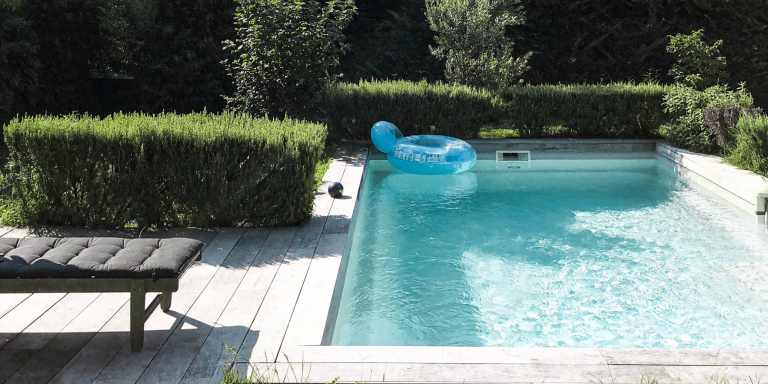
There are and will always be fraudsters… Artificial intelligence will help identify those who have “omitted” to declare certain buildings to the tax authorities, such as outbuildings, garden sheds and swimming pools. The latter are numerous in the Bouches-du-Rhône and the Var, which benefit from a high rate of sunshine. Since September 2021, the tax authorities have decided to detect illegal swimming pools using artificial intelligence, thanks to the support of Capgemini and Google. There are about 4,000 in the Var and 8,000 in the Bouches-du-Rhône according to an initial assessment.
To combat irregularities in the declaration of buildings, the DGFIP (Direction Générale des Finances Publiques) has launched the “Foncier innovant” project, which uses innovative artificial intelligence and data enhancement technologies based on IGN aerial photographs.
The “Foncier Innovant” project
An experiment of the “Foncier Innovant” project has begun in 9 departments, focusing initially on the detection of swimming pools:
- In the southeast: Alpes-Maritimes, Var, Bouches-du-Rhône, Ardèche, Rhône, Haute-Savoie;
- In the West: Morbihan, Maine-et-Loire and Vendée.
The algorithm crosses aerial images and cartographic data from the IGN (available on the website https://www.geoportail.gouv.fr/) with taxpayers’ declarations made to the town planning and tax authorities. It then points out the pools that do not appear in the tax files. A tax agent then checks the results to verify that it is indeed a swimming pool subject to declaration and not, for example, an above-ground pool or “a simple blue tarp stretched in the garden,” says Ondine Acquaviva, Assistant Administrator of Public Finance in the Var. “On-site checks can be carried out if necessary, as it is important to corroborate these detections by human beings”. Capgemini is providing project management and project management assistance, while Google is providing the cloud infrastructure and its services for the development of artificial intelligence models based on the technological bricks.
Respect of personal data
Only the IGN’s public aerial images, to the exclusion of any other source of imagery, are processed on a public cloud. The use of the public cloud is linked to the need to benefit from significant graphic computing power. Concerning the respect of personal data and the intervention of Google and Capgemini, Ondine Acquaviva assures:
“there is a strict respect of the confidentiality of tax data and taxpayers’ declarative data. The DDFiP is the master of the system. It steers the process and ensures the confidentiality of the data, which is absolutely not accessible to private partners. Cap Gemini and Google only intervene on IGN maps that are already public.”
However, some detractors of the project mention the fact that Capgemini would have subcontracted part of the process to make up for the delay.
The first assessment of the system
The Direction Départementale des Finances Publiques has unveiled the first assessment of the “Foncier Innovant” scheme. The fraud concerns 4,000 pools in the Var and 8,000 in the Bouches-du-Rhône. Their owners will receive a letter in the coming weeks asking them to regularize their situation and, if they do not respond, a fine. They will then have to indicate to the tax authorities the surface area and the date of completion of the pool in order to establish the amount of the 2022 property tax. The director of public finance of the Var ensures:
“If they refuse to respond to this amicable reminder, the owners will be subject to an automatic assessment and will be subject to payment of a fine ranging from 60 to 150 euros”.
Other buildings, such as house extensions or garden sheds, should be spotted by the end of 2022 for regularization in 2023.
Tax equity
Pascal Rothé adds:
“The philosophy of this device is indeed tax fairness! We want to avoid that some taxpayers abuse by not declaring all their data. When the tax value of a property increases, it is normal that its owner is taxed accordingly. Hence this process of computerized detection, control and dunning. Our objective is also to provide local authorities (which collect property tax, editor’s note) with the fairest possible tax resource.
Translated from Bouches-du-Rhône et Var : 12 000 piscines non déclarées détectées grâce à l’Intelligence Artificielle









